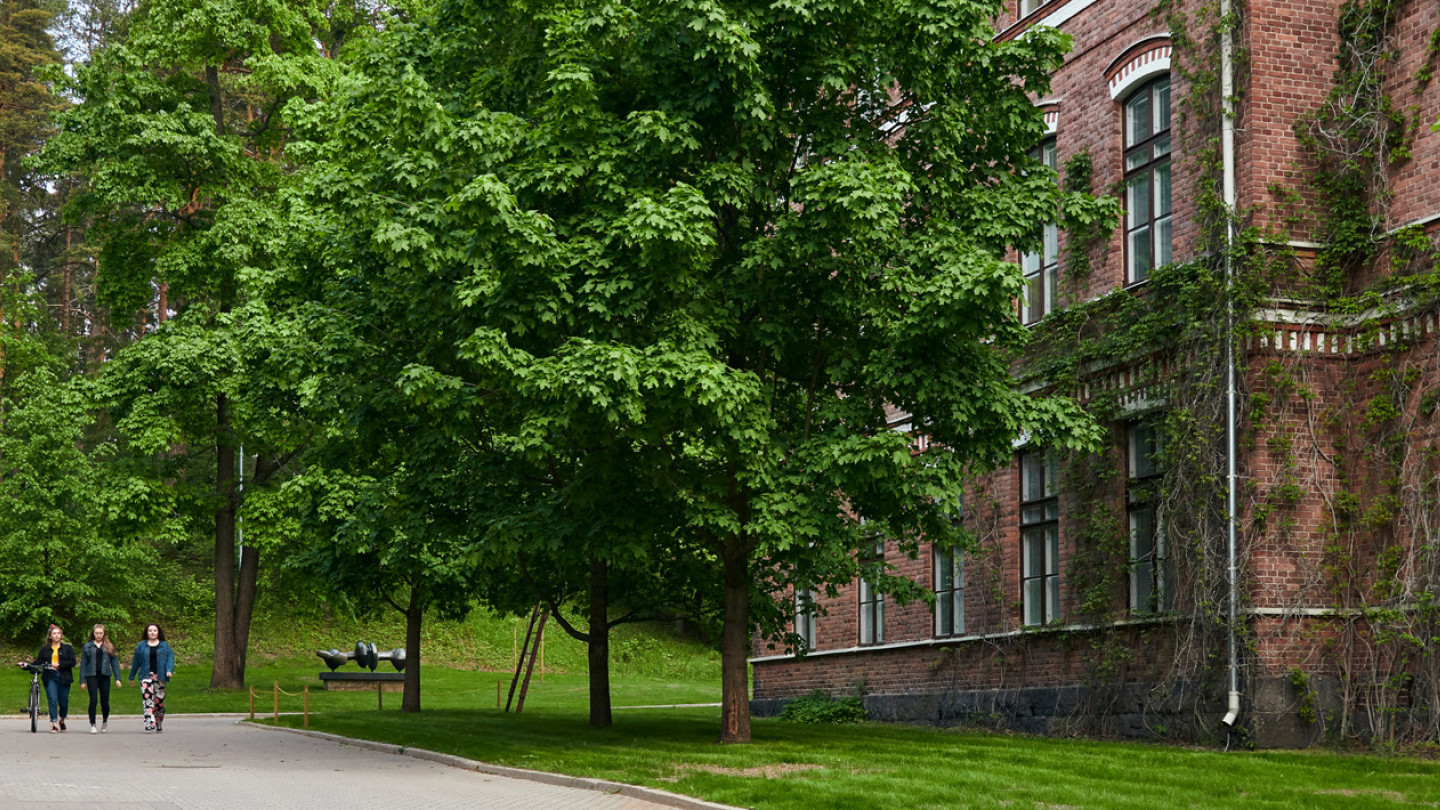
Code of Conduct
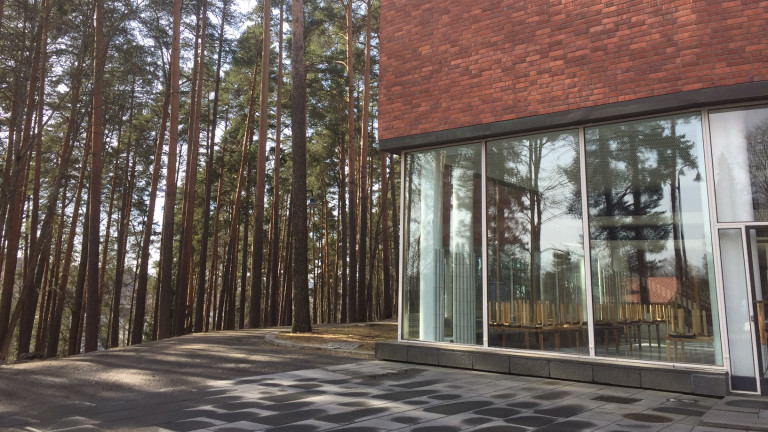
Our university’s values are openness, trust, quality and integrity, and they lay the foundation for our operating culture and our Code of Conduct. Our Code of Conduct gives us a shared set of rules that supports our decision making, both small everyday decisions and larger ones. They represent how the members of our community act in different situations: as a co-student, colleague, team leader, director, or employer – in all everyday activities and meetings in our university community.
Our responsible activities, in line with our values, are materialised in practice in all the choices we make as individuals or as a university in society at large.
We constitute a physically and psychologically safe work and study environment, which also allows room for criticism, and in which we are all responsible for safety through our actions.
Each member and partner of our university community has the right to equal, non-discriminating and respectful treatment, regardless of their age, origin or nationality, language, religion, beliefs, culture, opinions, political activity, trade union membership, family relations, health, disability or functional capacity, sexual orientation, gender, gender identity, gender expression, or other factor related to their person.
As an employer, the university is responsible for general safety by taking care of good leadership, induction, work and study arrangements and methods, the support required, and safe, healthy and well-functioning facilities.
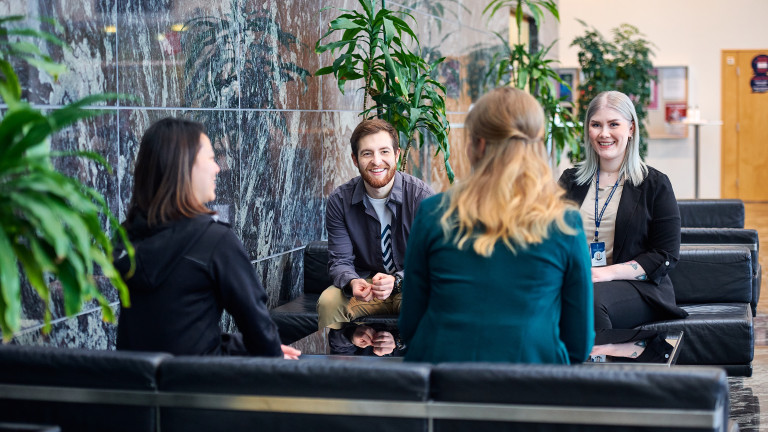

Our university supports its community’s comprehensive wellbeing when working and studying through various development measures and operating models. Directors, supervisors and team leaders monitor working conditions and the state of their work community as part of their occupational safety and health obligations, and they resolve any issues that they observe, or that are reported to them. During teaching, the teacher’s responsibility for ensuring safety is emphasised.
We are committed to following national recommendations concerning responsible researcher evaluation as well as the principles of the European Charter for Researchers and the Code of Conduct for their Recruitment. Everyone is entitled to choose whether they want to join a trade union.

Our university is committed to complying with the principles and guidelines of the Finnish National Board on Research Integrity concerning research integrity. Our university is part of the international scientific community. Whenever research is conducted in international cooperation, our researchers address the ethical guidelines of the EU and the partnering country as necessary.
Our researchers produce new scientific information by complying with the principles of responsible research conduct. In addition, they take data protection, information security and responsible science communication, as well as the promotion of open science, into account. Our researchers address the principles of responsible conduct of research at all the stages of their research processes and their research careers. They comply with the principles when they act as teachers and supervisors or are applicants for a position or research funding, as well as when they carry out expert services in their own field in scientific projects or projects outside the scientific community.
Our researchers respect their research subjects’ human dignity and right to self-determination, material or immaterial cultural heritage, and biodiversity and animal rights. The principles of responsible conduct of research also apply to the commercialisation of the university’s research results and to commissioned research. The university ensures that the rights to research results are appropriately identified and allocated.
At our university, researchers and research are evaluated in accordance with national recommendations concerning responsible researcher evaluation. The recommendation includes the transparency, integrity, equality, validity and diversity of evaluations. Each member of our university community is responsible for preventing scientific dishonesty, and for identifying and preventing fraud and dishonesty in all research.
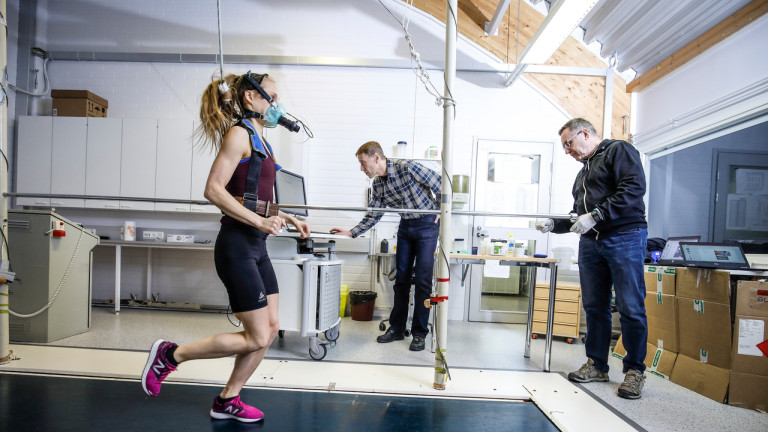

As members of our university community, both our teachers and students must act appropriately responsibly in their own roles. They must develop their own skills and use their creativity, knowledge and skills.
We provide our students with guidance and induction regarding the ethical guidelines and the responsible conduct of research during their entire student career.
Academic fraud is not permitted at any stage of studies or in any courses. All fraud allegations will be investigated using appropriate procedures.
Transparency, equality and accessibility are key principles followed in teaching and guidance at our university. These are also followed in the admission and evaluation of students in addition to the principles of good governance. Our students are engaged in the collaborative development of education and evaluation, and they have the opportunity to give feedback on teaching.
The University of Jyväskylä is a reliable, reputable and desired partner. We cooperate with scientific organisations, other public parties, companies, the third sector (associations) and financiers.
We pursue partnerships that promote and support the values of our university and the realisation of the principles of responsibility. Our partners’ Code of Conduct principles are expected to correspond with those of our own where applicable.
We raise funds openly and transparently. We accept donations that support the university’s operations. We distinguish between gratuitous donations and cooperation for consideration, which the university may have with its partners.

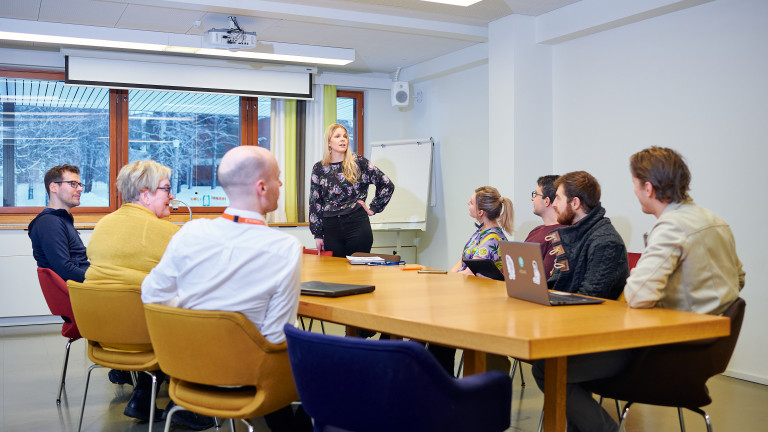
Good governance helps us promote individuals’ legal protection. As part of good governance, everyone must be treated fairly, and decisions and their preparation must be impartial, thorough and timely. Responding to appropriate questions and hearing concerned parties in preparing decisions are also part of good governance. Decision making must be clearly justified. Compliance with the principles of good governance is mandatory by law in carrying out our public administrative duties, but they also support the fulfilment of our values in our other operations.
As members of the university community, we identify and report any disqualifications, as well as other conflicts of interest related to our duties, and we recuse ourselves if necessary.
As staff members, we only offer gifts of low value to the university’s partners, and similarly, we only accept gifts of low value. We do not accept a gift or benefit the purpose of which is – or seems to be – to affect how an employee performs their tasks.

As members of the university community, we use the university’s material, intellectual and financial resources responsibly and carefully. We take care of protecting the university’s assets appropriately as necessary in each situation. The university’s facilities are meant to be used for operations defined by the university.
When planning and making purchases and investments, we make responsible choices and promote ecological, social and cultural sustainability. We do not accept the use of forced or child labour, bribery, corruption or any kind of inappropriate activity.
We assess the necessity of our purchases systematically and promote the circular economy. When making investments, we comply with the UN’s Principles for Responsible Investment (UN PRI), and we take into consideration the environmental, social and governance criteria (ESG). Our investments address our university’s carbon neutrality goals.
The promotion of open science is one of the key goals of our university. However, we respect the protection of privacy and the protected rights of third parties in all our operations.
When conducting our work, we primarily use the technical equipment provided by our university. We only use systems in which information security has been ensured appropriately. By following internal instructions related to information security and data protection, and by constantly maintaining our competence, we ensure that security threats will not be realised because of users.
We observe special caution in the processing of confidential information and personal data. In addition, we provide each member of our community with guidance and instructions regarding the appropriate processing of personal data.


Each member of our university community has the right to openly report any issues they have identified to supervisors, teachers or other members of the university staff, who are obligated to forward the issue through mutually agreed processes.
We encourage everyone to report any issues in their own name to ensure we can request further clarifications if necessary. Tackling any issues and shortcomings is important to enable us to take corrective action. As a student, you can turn to your teacher, and as a staff member to your supervisor.



